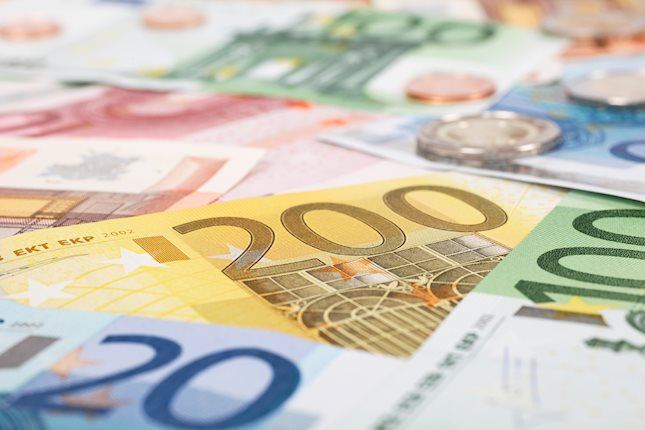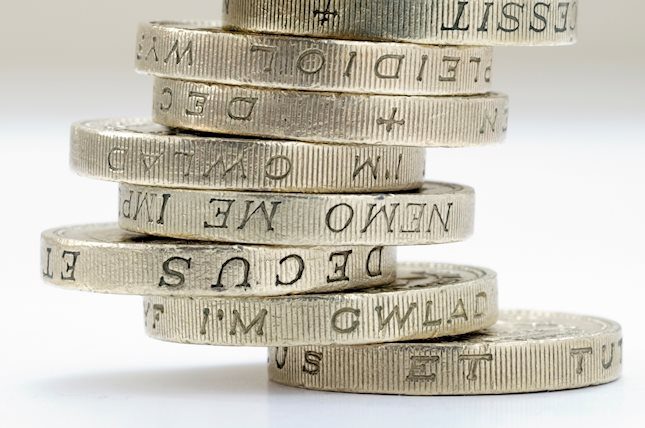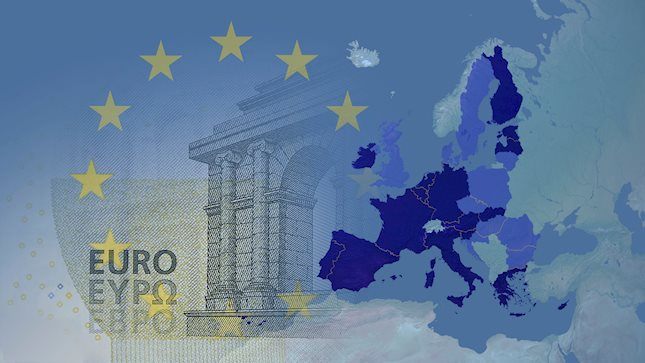NZD/USD Exchange rate
Editors’ Picks

EUR/USD stabilizes near 1.0550 despite soft German inflation data
EUR/USD fluctuates in a narrow range near 1.0550 in the American session on Thursday. Soft inflation data from Germany makes it difficult for the Euro to gather strength, limiting the pair's upside, while US markets remain closed in observance of the Thanksgiving Day holiday.

GBP/USD trades below 1.2700 on modest USD recovery
GBP/USD struggles to gain traction and moves sideways below 1.2700 on Thursday. The US Dollar corrects higher following Wednesday's sharp decline, not allowing the pair to gain traction. The market action is likely to remain subdued in the American session.

Gold at risk of falling
Gold extends its shallow recovery from Tuesday’s lows as it trades in the $2,640s on Thursday. The yellow metal is seeing gains on the back of cementing market bets that the Fed will go ahead and cut US interest rates at its December meeting.

Fantom bulls eye yearly high as BTC rebounds
Fantom (FTM) continued its rally and rallied 8% until Thursday, trading above $1.09 after 43% gains in the previous week. Like FTM, most altcoins have continued the rally as Bitcoin (BTC) recovers from its recent pullback this week.

Eurozone PMI sounds the alarm about growth once more
The composite PMI dropped from 50 to 48.1, once more stressing growth concerns for the eurozone. Hard data has actually come in better than expected recently – so ahead of the December meeting, the ECB has to figure out whether this is the PMI crying wolf or whether it should take this signal seriously. We think it’s the latter.
Majors
Cryptocurrencies
Signatures
NZD/USD, THE “KIWI”
The NZD/USD currency pair, also called the “Kiwi”, tells the trader how many US dollars (the quote currency) are needed to purchase one New Zealand dollar (the base currency). Together with the Australian Dollar and the Canadian Dollar, the NZD is a commodity currency, that is a currency whose country's exports are largely comprised of raw materials (precious metals, oil, agriculture, etc.).
Along with the Australian Dollar, the NZD has been for many years a traditional vehicle for carry traders, which has made this currency also very sensitive to changes in interest rates.
HISTORIC HIGHS AND LOWS FOR NZD/USD
- All-time records: Max : 1.49 on 5/11/1973 - Min: 0.3962 on 16/10/2000
- Last 5 years: 0.7737 on 27/04/2015 - Min: 0.65794 on 20/08/2015
* Data as of February 2020
ASSETS THAT INFLUENCE NZD/USD THE MOST
- Currencies: AUD, CNY and YEN (Australia, China and Japan are important regional partners of New Zealand). This group also includes the following currency pairs: EUR/USD, GBP/USD, USD/JPY, AUD/USD, USD/CHF, USD/CAD, GBP/JPY and EUR/JPY
- Commodities: First of, coal. New Zealand has extensive coal resources: coal accounts for about 10% of New Zealand’s primary energy (excluding transport fuels). Other important commodities are Silver and Iron Ore.
- Bonds: GNZGB10 (New Zealand Govt Bond 10 Year) and AGB (debt securities issued by the Australian Government) and T-NOTE 10Y (10 year United States Treasury note).
- Indices: NZX (New Zealand Exchange), ASX (Australian Securities Exchange) and Nikkei 225 (a stock market index for the Tokyo Stock Exchange).
ORGANIZATIONS, PEOPLE AND ECONOMIC DATA THAT INFLUENCE NZD/USD
The organizations and people that affect the most the moves of the NZD/USD pair are:
- Reserve Bank of New Zealand (RBNZ), the central bank of that country. It was established in 1934 and is constituted under the Reserve Bank of New Zealand Act 1989. The Governor of the Reserve Bank is responsible for New Zealand's currency and operating monetary policy. The Bank's current Governor is Adrian Orr.
- New Zealand Government (whose Prime Minister is Jacinda Ardern) and its Ministry of Business, Innovation and Employment (MBIE) that implement policies that affect the economy of the country.
- Asia-Pacific Economic Cooperation (APEC), forum for 21 Pacific Rim member economies that promotes free trade throughout the Asia-Pacific region.
- The US Government (and its President Joe Biden): events as administration statements, new laws and regulations or fiscal policy can increase or decrease the value of the US Dollar and the currencies traded against it, in this case the New Zealand Dollar.
- Fed, the Federal Reserve of the United States whose president is Jerome Powell. The Fed controls the monetary policy, through active duties such as managing interest rates, setting the reserve requirement, and acting as a lender of last resort to the banking sector during times of bank insolvency or financial crisis.
In terms of economic data, as for most currencies, the NZD/USD traders have to keep an eye on:
- GDP (Gross Domestic Product), the total market value of all final goods and services produced in a country. It is a gross measure of market activity because it indicates the pace at which a country's economy is growing or decreasing. Generally speaking, a high reading or a better than expected number is seen as positive for the NZD, while a low reading is negative.
- Inflation measured by key indicators as the CPI (Consumer Price Index) and the PPI (Production Price Index), which reflect changes in purchasing trends.